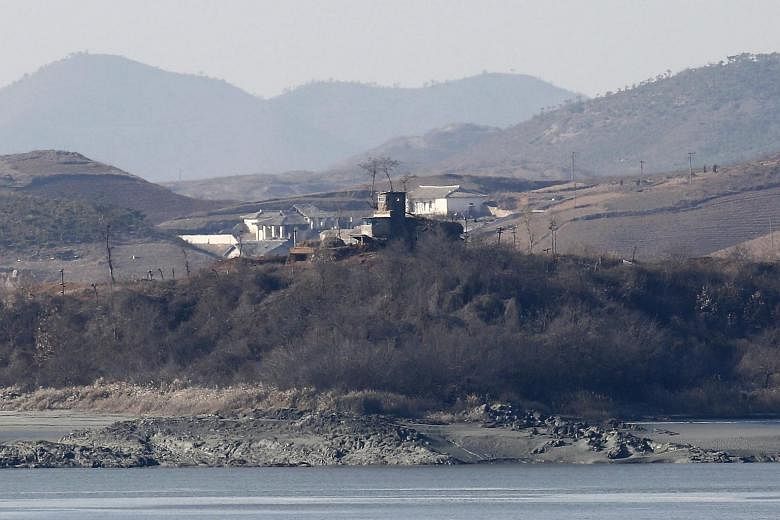TOKYO/SEOUL • North Korea's nuclear test last week set off alarm bells in Japan and South Korea, but its more enduring outcome may be the cementing of a fragile reconciliation that could lead to military cooperation between the two key United States allies.
Tokyo and Seoul reached a landmark deal last month to resolve the issue of comfort women forced to work in Japan's wartime military brothels, which had been an emotive impediment to better ties. Japan apologised and promised about one billion yen (S$12 million) to help the surviving women who were coerced into prostitution.
North Korea's latest nuclear detonation could strengthen that reconciliation, say military officials and defence experts, as the two countries unite against a common threat. That, in turn, could lead to military cooperation instead of the frosty distance they have maintained, even though they are the US' closest allies in the region.
"I think the comfort women pact and the North Korean test could spur military cooperation," said a senior Japanese navy officer who did not want to be identified.
"The test has worsened the security situation in the region."
South Korean President Park Geun Hye spoke by phone to Japanese Prime Minister Shinzo Abe last Thursday. They discussed the need for close cooperation with each other, as well as with the US, China and Russia, said Ms Park's office.
Pentagon spokesman Jeff Davis said senior defence officials from the US, South Korea and Japan held a video conference on Thursday and agreed "to continue to cooperate closely and share information on North Korea's nuclear threat".
Also, US Secretary of Defence Ash Carter spoke by phone to his Japanese counterpart Gen Nakatani on Friday and they "agreed that trilateral cooperation with the Republic of Korea is critical to deterrence and maintaining peace and security in North-east Asia and beyond".
"There may be a broad review of what can be done to improve security cooperation (with Japan)," said a senior South Korean official, adding that nothing specific has yet been discussed.
The gulf between South Korea and Japan has worried the US as it increasingly relies on its Asian allies to work together to guarantee security in the region amid China's growing military might.
Past tensions have prevented Japan and South Korea from agreeing to share sensitive military information. An attempt to institutionalise security cooperation through the General Security of Military Information Agreement in 2012 failed after significant domestic opposition in South Korea.
In a bid to resolve the impasse, Washington agreed last year to act as a go-between to allow Seoul and Tokyo to swap intelligence.
"It really is in the interest of all three countries that we have no seams between that information when you are trying to defend your country against a ballistic missile," Vice-Admiral Joseph Aucoin, commander of the US Seventh Fleet, said on Friday.
When asked whether there was hope for greater cooperation between Japan and South Korea in the wake of the latest North Korean nuclear test, Vice-Adm Aucoin replied: "I got to believe so."
Mr Abe and Ms Park, nonetheless, will still have to tread carefully around long-held grievances that date back to World War II.
Seoul has criticised Japanese school textbooks that it says distort history and downplay Tokyo's wartime and colonial atrocities.
Also, Japan and South Korea are at odds over territorial issues.
"North Korea's nuclear testing will help restore Japan-South Korean military cooperation. However, the comfort women issue will continue to haunt Park's efforts to restore ties," said political science professor Chung-In Moon of Yonsei University in South Korea.
REUTERS

